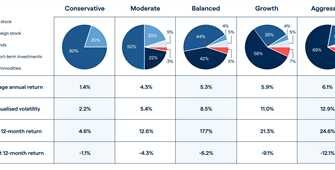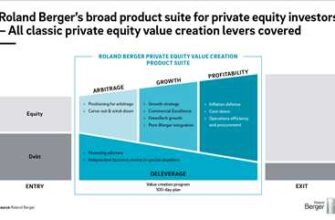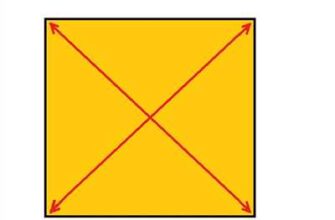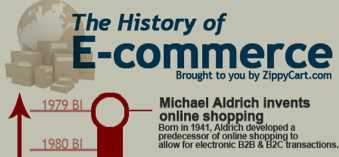
In today’s world, e-commerce has become an integral part of the commercial industry. But have you ever wondered how it all started? The first step towards the future of buying and selling online was the invention of e-commerce. And it all began with the definition.
E-commerce, also known as electronic commerce, is the process of buying and selling goods and services online. It is where transactions take place over the internet, allowing users to shop and make purchases from the comfort of their own homes. The concept was revolutionary, as it offered a new and convenient way for people to do their shopping. Gone were the days of having to go to physical stores to make a purchase – now, you could simply order what you needed with a few clicks.
When e-commerce first started, it was a relatively small industry. But as more and more people embraced the idea of online shopping, its popularity grew quickly. Companies began to open up online stores to offer their products and services to a wider audience. With each transaction made, they saw an increase in sales and revenue, and the potential for growth was clear.
As e-commerce continues to evolve, we can expect to see even more innovation in the future. The industry is constantly changing and adapting to meet the needs of its users. Whether it’s the introduction of new technologies or the improvement of existing ones, the future of e-commerce looks promising. So, if you haven’t already, it’s time to learn more about e-commerce and embrace the world of online shopping.
- E-Commerce
- The Future of E-Commerce
- E-commerce Definition
- The Future of E-commerce
- The Next Step in E-commerce
- The invention of online shopping and first transaction
- Where Do E-commerce Sales Go Next
- 1. User Experience and Personalization
- 2. The Rise of Mobile Commerce
- Video:
- 6 Things To Know Before You Start an Ecommerce Business
E-Commerce
E-commerce, short for electronic commerce, is the buying and selling of goods and services using the internet. It started with the invention of the internet, which opened up a whole new industry for commercial transactions.
When it comes to e-commerce, the definition is pretty straightforward. It’s a step further from the traditional brick-and-mortar stores, where you can shop and make transactions online. With e-commerce, you have the convenience of shopping from the comfort of your own home or anywhere you have an internet connection.
The Future of E-Commerce
E-commerce has seen tremendous growth over the years, and it continues to evolve. With the advent of mobile devices, users now expect a seamless online shopping experience. They want to be able to make transactions quickly and easily, whether it’s buying a product or booking a service.
The future of e-commerce looks promising, with more businesses opening up online stores to generate revenue. Many companies are now offering free shipping and other incentives to attract customers. It’s an exciting time to be a part of the e-commerce industry, as the possibilities are endless.
E-commerce Definition
E-commerce, short for electronic commerce, is the definition that encompasses all the transactions involving the buying and selling of goods and services online. It is a commercial activity that takes place electronically, where users do not expect to physically visit a store to make a purchase. E-commerce has opened up new possibilities for businesses to offer their products or services to a wider audience, without the limitations of location or time.
When it comes to e-commerce, the first step is to have an online presence, such as a website or an app, where customers can browse through products or services and make a purchase. This can be done through various means, including an online shopping cart, which allows customers to add items they wish to buy and proceed to the checkout for payment.
The invention of e-commerce has revolutionized the way businesses operate and how consumers shop. In the past, sales transactions were limited to physical stores, but with the advent of e-commerce, businesses can now reach customers from all over the world. This has resulted in increased revenue opportunities for businesses, as well as a more convenient and hassle-free shopping experience for consumers.
The Future of E-commerce
The e-commerce industry continues to grow and evolve, with new technologies and innovations constantly being introduced. As more businesses go online, the future of e-commerce looks promising, with the potential for even greater expansion and revenue opportunities. With the increasing popularity of mobile devices, e-commerce is expected to continue shifting towards mobile platforms, providing users with a seamless and convenient shopping experience.
Furthermore, e-commerce has the potential to offer personalized and tailored shopping experiences, utilizing technologies such as artificial intelligence and machine learning. This could involve recommending products based on a user’s browsing history or offering customized promotions and discounts. The future of e-commerce holds endless possibilities, and businesses that embrace these advancements will be well-positioned to thrive in the digital age.
The Next Step in E-commerce
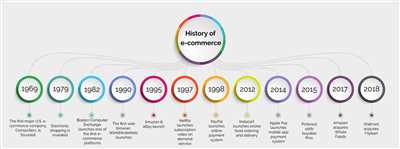
As e-commerce continues to evolve, the next step is likely to be the integration of virtual reality and augmented reality technologies. This could revolutionize the online shopping experience by allowing users to virtually try on clothing or test out products before making a purchase. Additionally, advancements in payment technologies, such as cryptocurrency and blockchain, could also play a significant role in the future of e-commerce, ensuring secure and efficient transactions.
In conclusion, e-commerce is the definition of the online commercial industry, where businesses and consumers engage in sales transactions without the need for physical presence. It has opened up a world of opportunities for businesses to reach a wider audience and offer their products or services online. The future of e-commerce looks promising, with advancements in technology and user experiences enhancing the way we shop online.
| Key Points: |
|---|
| – E-commerce is the buying and selling of goods and services online |
| – It offers businesses a way to reach a wider audience and increase revenue |
| – The future of e-commerce includes personalized experiences and new technologies |
| – Virtual reality, augmented reality, and payment technologies are the next steps |
The invention of online shopping and first transaction
When it comes to the history of e-commerce, it all started with the invention of online shopping and the first transaction. The e-commerce industry as we know it today began to take shape in the 1990s, but the origins go back even further.
The first commercial transaction over the internet took place in 1994, forever changing the way people buy and sell goods. It was a landmark moment that opened up a world of possibilities for both businesses and consumers.
Before online shopping, buying goods meant going to physical stores, dealing with crowds, limited selection, and fixed operating hours. But with the invention of e-commerce, users were able to go online, browse from the comfort of their own homes, and make purchases at any time that was convenient for them.
The definition of online shopping is simple: it is the process of buying goods or services over the internet. The reasons for its popularity are varied, but the convenience and accessibility it offers are some of the main factors.
With online shopping, you can learn about different products, compare prices, read reviews, and make informed decisions before making a purchase. The ability to shop from anywhere in the world and have your items delivered right to your doorstep is a game-changer.
But the invention of online shopping wasn’t just about convenience for the user. It also opened up new doors for businesses. E-commerce offered a platform for businesses of all sizes to reach a global audience and expand their customer base.
The first transaction that took place online was a $12.48 CD by Sting sold by NetMarket, a company founded by Dan Kohn. This small transaction may not seem significant in hindsight, but it paved the way for the future of e-commerce and set the stage for the massive revenue-generating industry it has become today.
Since that first transaction, the e-commerce industry has continued to grow and evolve. The future of online shopping is exciting, with new technologies and innovations constantly being introduced to enhance the user experience.
So, the next time you go online to make a purchase, remember the history and the steps that were taken to bring you the convenience and freedom of e-commerce.
Where Do E-commerce Sales Go Next
With the invention of e-commerce, the buying and selling of goods and services online has become a commercial industry that continues to grow. But where do e-commerce sales go next?
First, let’s define e-commerce. It refers to the online transactions that take place between a buyer and a seller. This can include anything from buying clothes and electronics to booking flights and ordering food online. The future of e-commerce sales is an open book, and there are several exciting possibilities to expect.
1. User Experience and Personalization
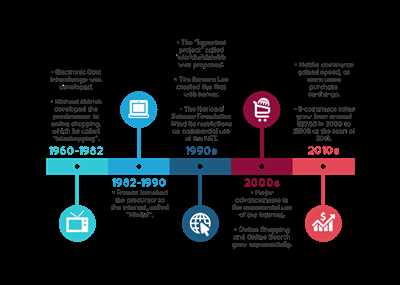
As e-commerce continues to evolve, user experience becomes a top priority for businesses. Companies are investing in improving the overall shopping experience by offering personalized recommendations, streamlined checkout processes, and enhanced customer support. Expect to see more e-commerce platforms focusing on providing a seamless and user-friendly shopping experience.
2. The Rise of Mobile Commerce
The rapid growth of smartphone usage has led to an increase in mobile commerce, or m-commerce. As more consumers rely on their mobile devices for shopping, businesses need to adapt to this trend. Expect to see e-commerce platforms optimizing their websites and apps for mobile devices to cater to the growing number of mobile shoppers.
Furthermore, with the rise of mobile wallets and contactless payment options, the future of e-commerce sales will likely include more convenience and flexibility in completing transactions.
In conclusion, the e-commerce industry is far from reaching its peak. As technology advances and consumer behavior changes, there is still much to learn and discover. Whether it’s through enhanced user experiences or the rise of mobile commerce, e-commerce sales are expected to continue growing and offering new opportunities for businesses and consumers alike.

